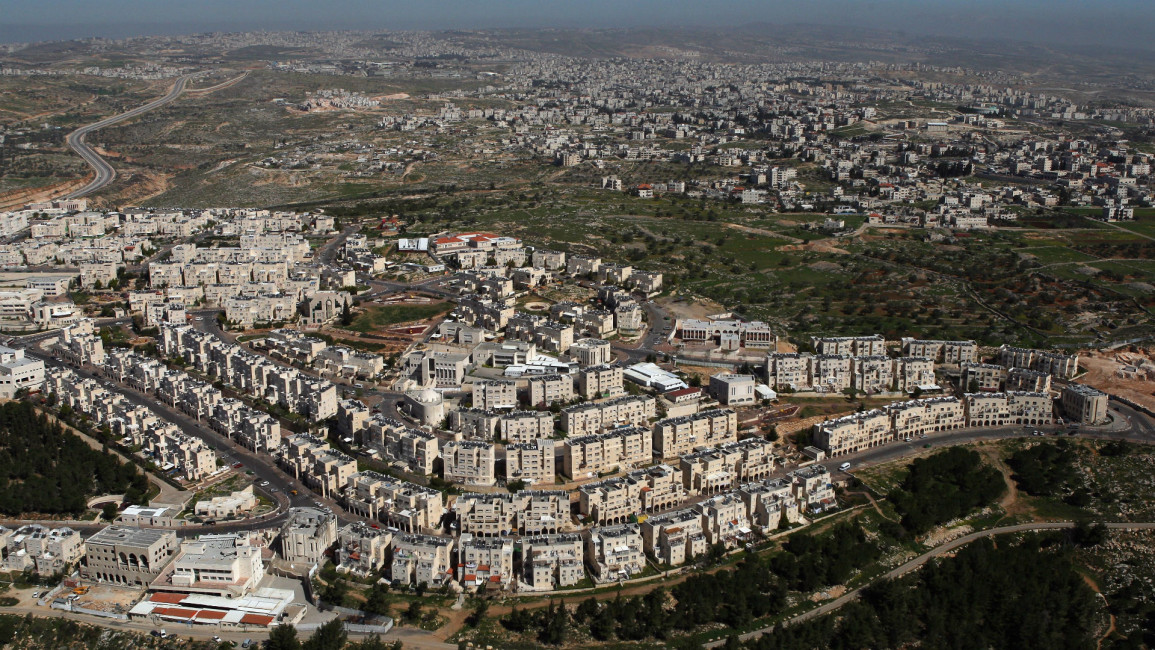4,000 illegal Israeli settlement homes could become legal
Israel's controversial draft law that could lead to the legalisation of nearly 4,000 settler homes in the occupied West Bank passed a preliminary vote in parliament on Monday.
The bill, which was voted for by 60 deputies to 49 and still has to be adopted in three readings before becoming law, has already attracted strong international criticism, with some describing the move as "national suicide".
The draft is the fruit of a compromise between Israeli Prime Minister Binyamin Netanyahu and the bill's main backer, Education Minister Naftali Bennett, who has called it the start of Israel's eventual annexation of most of the West Bank.
Agreement between the two is likely to assure the draft bill's eventual passage through the Knesset, or parliament.
Bennett, from the religious nationalist Jewish Home party, is among members of Netanyahu's coalition who have made no secret of opposing a Palestinian state.
Netanyahu says he still backs a two-state solution to the decades-old Israeli-Palestinian conflict.
Opposition leader Isaac Herzog, who heads the Labour party, denounced the law by equating its adoption with a "national suicide".
The bill has severely tested Netanyahu's coalition, seen as the most right-wing in Israeli history.
"With this law, the state of Israel has moved from the path leading to the creation of a Palestinian state to the path leading to (Israeli) sovereignty" over most of the West Bank, Bennett told army radio.
The international community considers all settlements in Israeli-annexed east Jerusalem and the West Bank to be illegal, whether they are authorised by the government or not, while Tel Aviv differentiates between those it has approved and those it has not.
Before Monday's vote, Netanyahu and Bennett agreed on a vote on the draft bill and the displacement of some 40 families from the wildcat settlement of Amona near Ramallah.
Amona is under a court order to be evacuated by December 25 since it was built on Palestinian land.
Some members of Netanyahu's coalition had previously said they could not support the bill if Amona remained part of it because of the court ruling against it.
The agreement will instead see Amona residents temporarily moved to nearby land that Israeli officials describe as abandoned, until a permanent solution is found.
Rights groups, however, say that land too is owned by Palestinians and that the move would violate international law.
Amona residents would be able to "stay on the hill where they are settled" but "move a few tens of metres", Netanyahu told his Likud parliamentary group.
"They would be able to stay there as a community, and this is a very important news."
The bill's progress has alarmed many in the international community, with the the UN envoy for the Middle East peace process, Nickolay Mladenov, suggesting the legislation "has the objective of protecting illegal settlements built on private Palestinian property in the West Bank.
"It is a very worrying initiative. I encourage Israeli legislators to reconsider such a move that would have far-reaching legal consequences across the occupied West Bank."
According to settlement watchdog Peace Now, the bill - if Amona is removed - would legalise some 3,881 housing units.
Most of the homes are located in Israeli-approved settlements but were built on Palestinian land. Around 750 are in outposts which Israel has not yet approved, Peace Now says.



